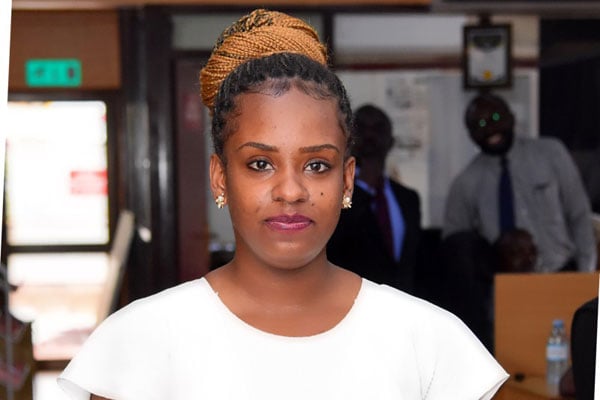Each KCCA school given Shs1.5m to fight coronavirus

Most of the schools are also planning to use more rooms for learning spaces in order to uphold social distancing. Photo | File
What you need to know:
- The fund, among other interventions, is part of efforts to get the schools moving after more than 20 months of interrupted learning.
A total of 101 schools in Kampala District will share a Shs151.5m package to support them in compliance with Covid-19 protocols as schools reopen.
The fund, among other interventions, is part of efforts to get the schools moving after more than 20 months of interrupted learning.
The Ministry of Education and Sports released the funds to Kampala Capital City Authority (KCCA) aided primary, secondary and other tertiary institutions.
Each school will receive Shs1.5m for managing the different standard operating procedures (SOPs) against the spread of the virus, says Ms Juliet Namuddu, the KCCA director of Education and Social Services.
The funds, she adds, will be given on top of the capitation grant that is termly to the schools.
Daily Monitor carried out a mini survey of the different schools in Kampala on their readiness to reopen.
Kiswa Primary School, for example, was building flush toilets.
In a bid to reduce the spread, the schools visited had WASHaLOTs (prefabricated washing systems, which can accommodate handwashing, tooth brushing, feet washing for up to 20 people at the same time) from their entry points to different parts of the school, while others did not have enough as observed.
Mr Dexious Charles Mukisa, the head teacher of Railway Children Primary School, says the children will be released at different intervals for break time, and also be guided and counselled to ease their minds back into the school routine.
Mr Francis Katabira, the head teacher of KCCA Primary School Kamwokya, says the Education ministry has briefed all personnel on how to receive and handle children when they report back.
“But also being parents, we know children should be handled properly, especially in this particular situation. We will need to build or rebuild the relationship since they have been away,” Mr Katabira says.
In an interview with Daily Monitor, Ms Namuddu said all schools under KCCA received some money earlier last year to buy home study materials among other necessities.
She also revealed that the amount of money each school got depended on the number of children they had.
Schools also pointed out the vaccination of their teachers as a safety mechanism.
Ms Irene Ssali, the secretary to Kampala School for the Physically Handicapped in Mengo revealed that more than 70 percent of their teachers had already been vaccinated before the Christmas break.
Most of the schools are also planning to use more rooms for learning spaces in order to uphold social distancing.
Mr Walter Odoch, the head teacher of Mackay Memorial School Nateete, says since the school has few learners, they are considering setting up three rooms as isolation places.
‘‘If something funny is noticed on a child or a staff member, they will be taken to the isolation room before communicating to health authorities,” Mr Odoch says.
What parents say
Ms Sarah Nanyonjo says she has five children who will be going back to school. The fact that her children have spent almost two years at home is more terrifying than the pandemic itself. “I just hope that our schools are understanding and that we are allowed to pay in installments as we pray for the virus to end,” she says.
Ms Diana Nasuna, a mother of two, says children need physical interaction with their friends, teachers and the outside world. ‘‘Although it is scary having them out there at school, it is worse having them sit home stuck in the same class after two years,” she says.
Mr Rogers Mugisha, a lawyer, says: “I am worried about the safety of my children and if they could continue studying online, that would be great. But they also need physical interaction with friends.’’





